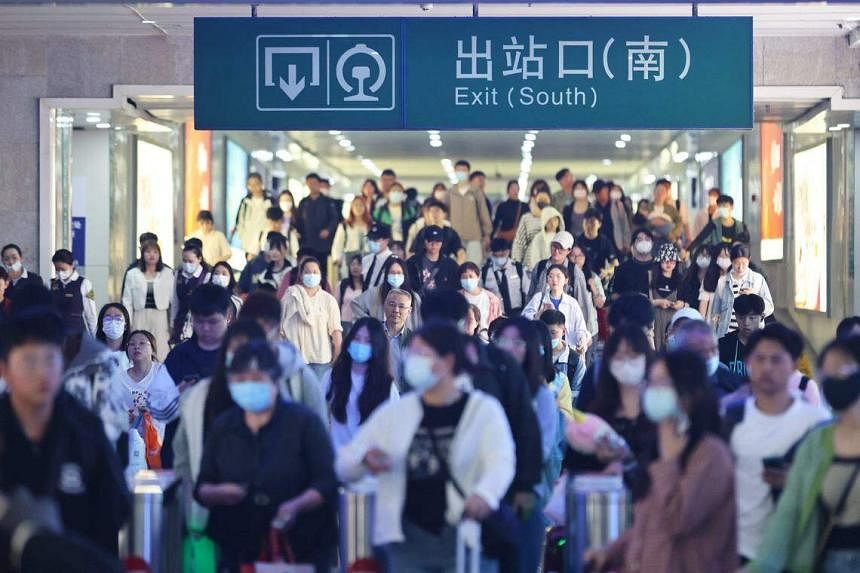Global Courant 2023-05-18 04:45:00
SHANGHAI — When graduate student Cai Zhishan decided to spend her Labor Day holiday in northern China, she wished she had enough money to rent a car for the more than 4,000 km round trip.
Instead, she opted for “traveling like special forces,” a new trend in China that has emerged as a symptom of the underlying weakness in household consumption and casts a shadow over the recovery of domestic tourism after the crisis. pandemic.
Ms. Cai, 22, usually took slow trains and buses when traveling from Hangzhou city, where she studies, around northern Shanxi province and back.
To get to the ancient temples, pagodas and caves she wanted to visit, she walked about 30,000 steps a day. For accommodation she chose night trains and cheap hostel beds.
For nine days, she spent only 2,500 yuan ($480).
“I don’t have much money, but I like to travel,” said Ms. Cai. “I can control the expenses, to go to a lot of places for as little money as possible, but it’s really exhausting.”
On social media, the hashtag “special forces travel” – which refers to an aggressive attack on a tourist area to see and do as much as possible for as little money as possible – went viral before and during the Labor Day break that ended April.
Ms. Cai was inspired by the online discussions, as were many other Chinese travelers who surprised with their frugality.
Data from the Ministry of Culture and Tourism showed that domestic travel increased massively in 2023 as many Chinese made up for three years of Covid-19 restrictions that saw them largely stay at home.
During the May holiday, which covered the period from April 28 to May 3 for most Chinese, 274 million trips were made, 19 percent more than in 2019 before the pandemic.
But total spending was 148 billion yuan, similar to 2019, meaning travelers will spend an average of 540 yuan in 2023 versus 603 yuan in 2019.
In another sign of tight pockets, international travel by Chinese tourists will remain a fraction of pre-pandemic levels in 2023.
“Chinese people are generally unwilling to spend as much as before and even if the government tries… to tempt consumption and reduce excess savings, I doubt it will succeed,” says Dr Alicia Garcia-Herrero, chief economist for Asia Pacific at Natixis. Research.
“People need jobs and higher wages to get back to spending.”




